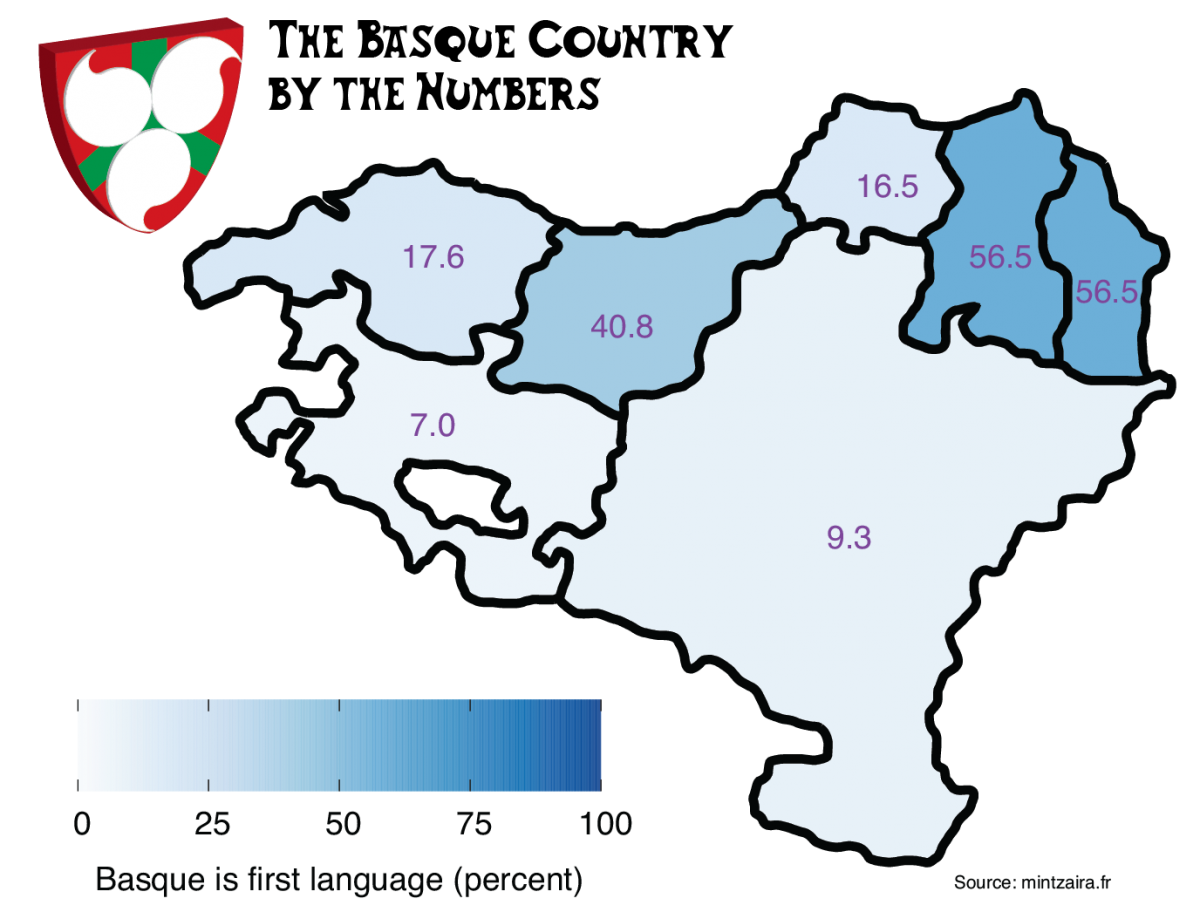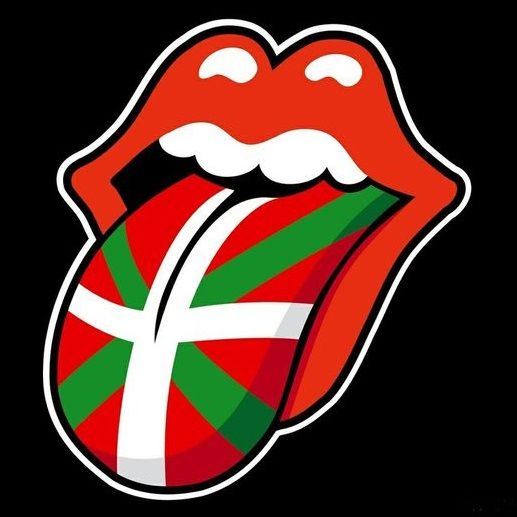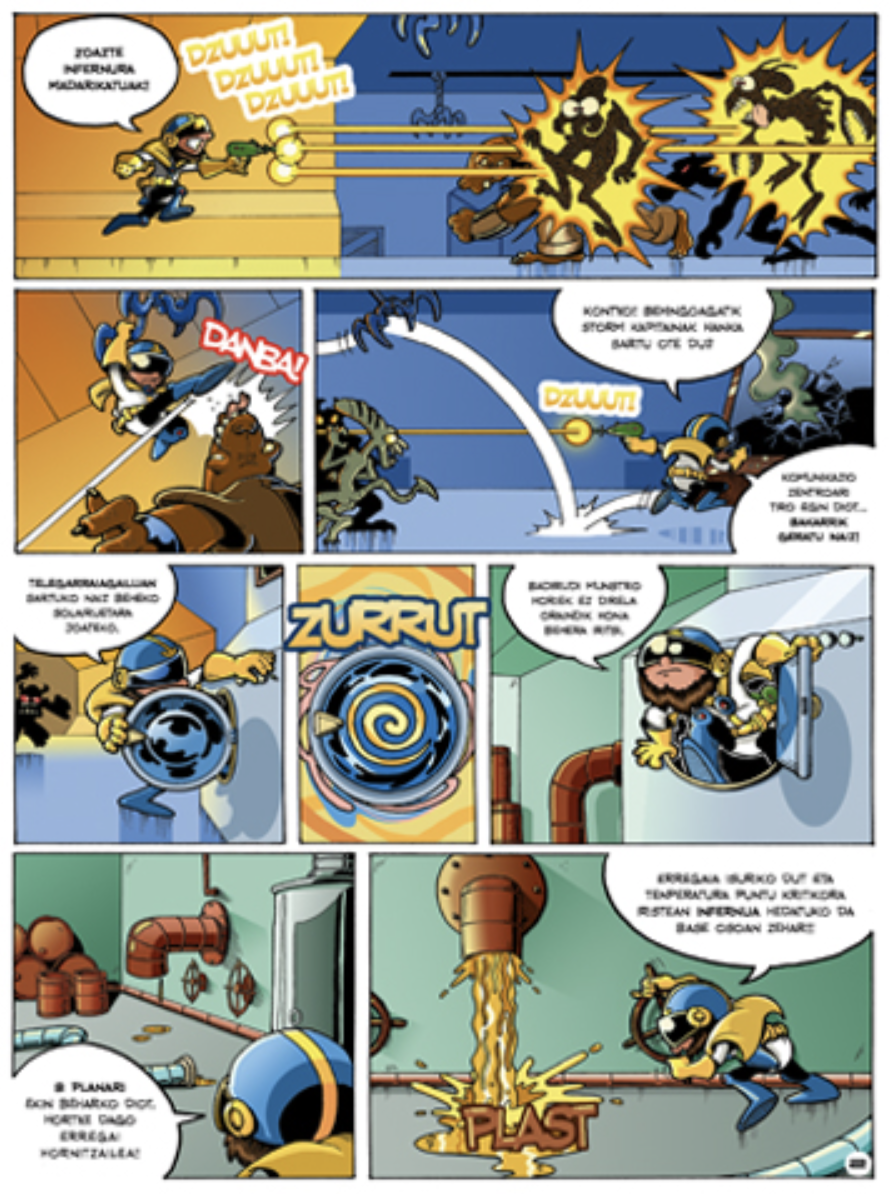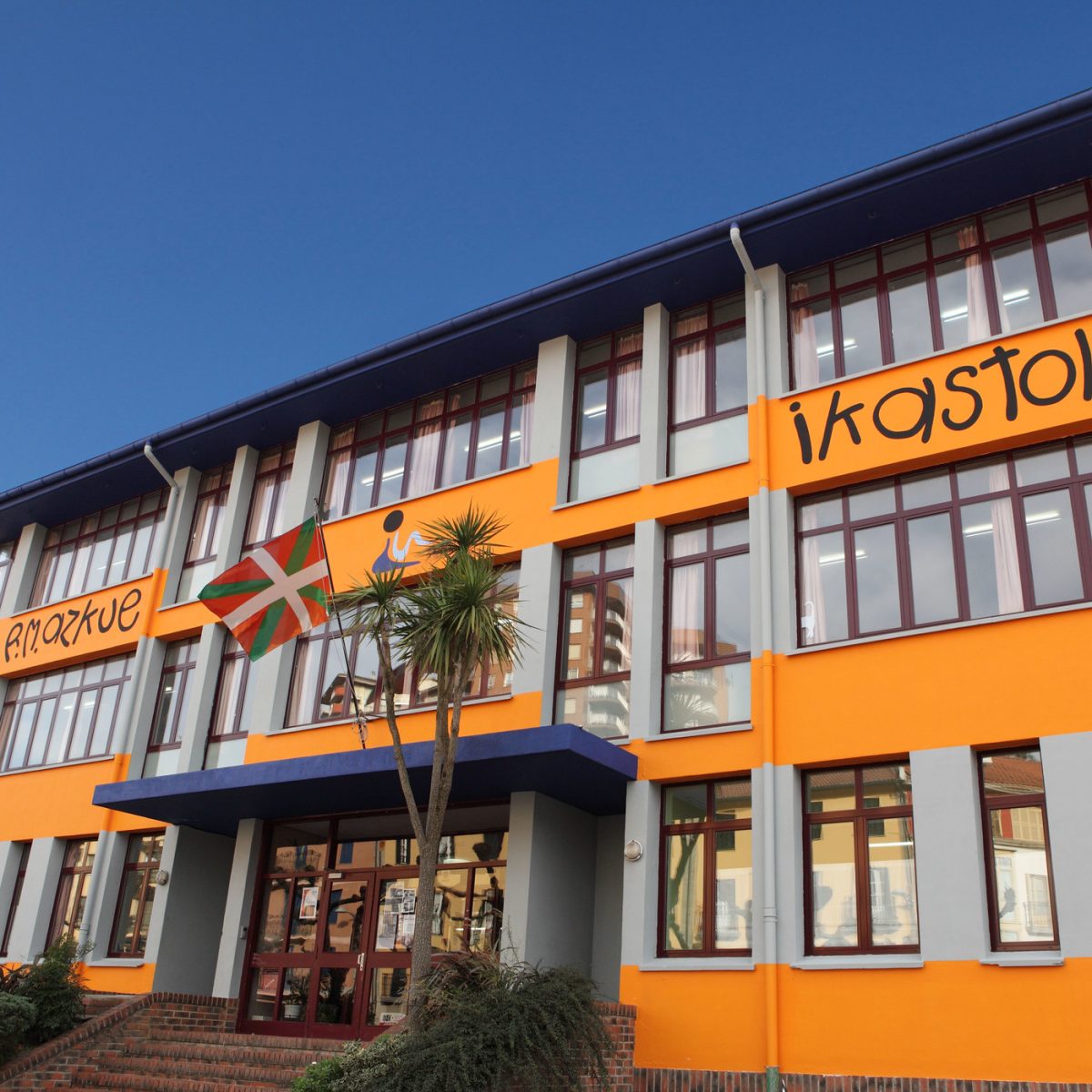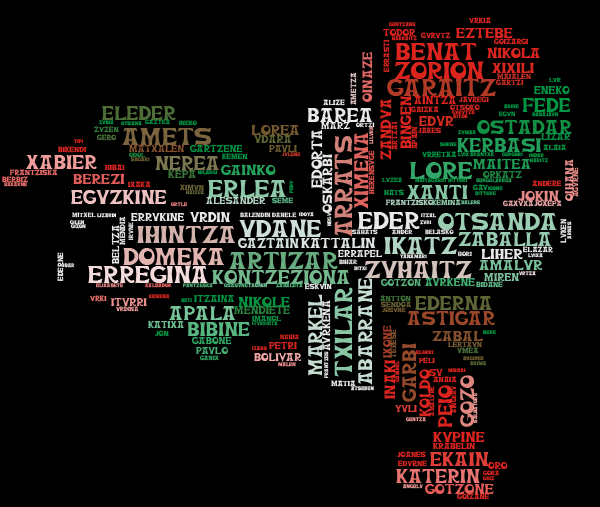
Basque Fact of the Week: Basque First Names
I’ve delved into my genealogy a bit, scouring the priests’ books that document births, deaths, and marriages in each little town. Going back centuries, the names are all too familiar: Pedro, Jose, Domingo, Juan for the men; Josefa, Maria, Manuela, Magdalena for the women. Once in a while, there will be a Bartolome, or an […]


